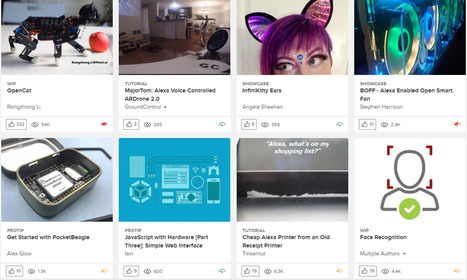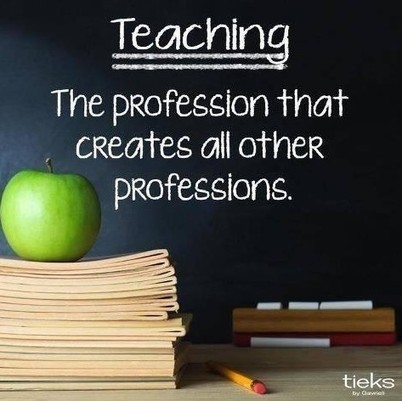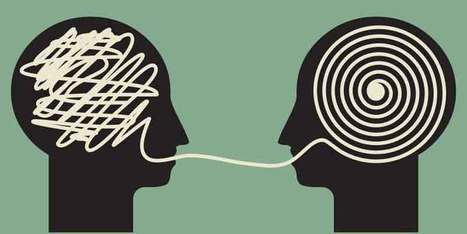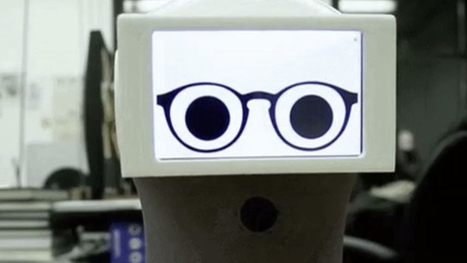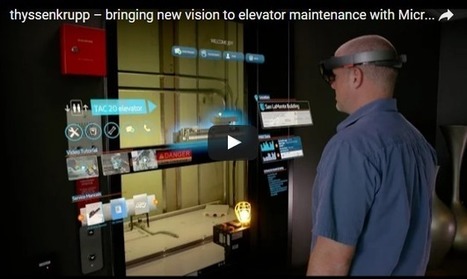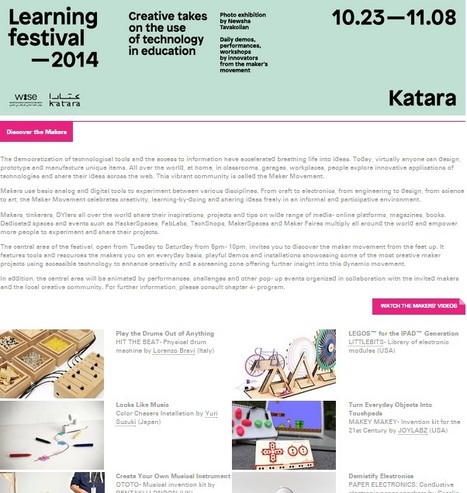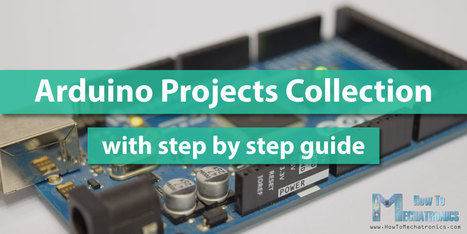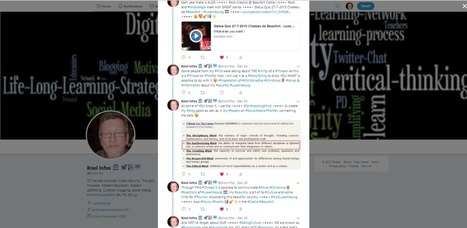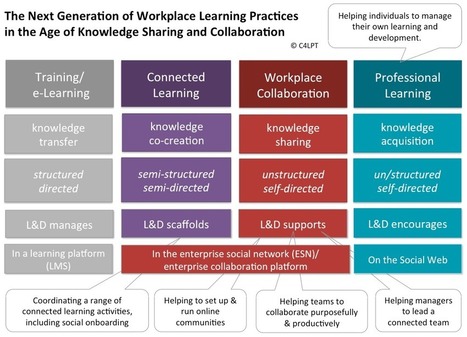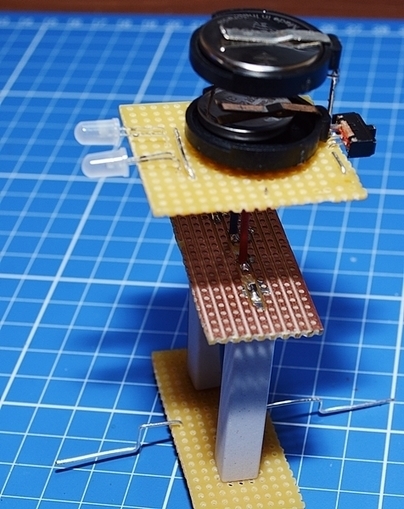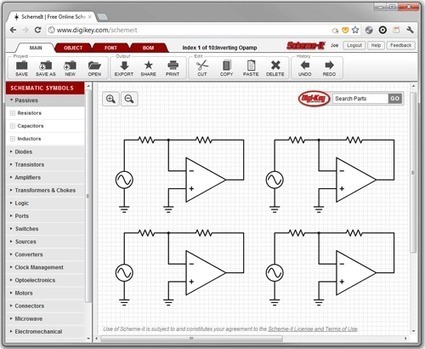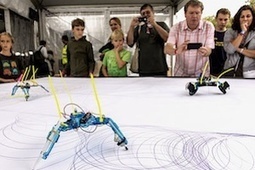 Your new post is loading...
 Your new post is loading...
Why do learning professionals in L and D – managers, project managers, interactive designers, learning experience designers and so on, ignore research? It doesn’t matter if you are implementing opportunities for learning such as nudges, social opportunities, workflow learning, performance support or designing pieces of content or full courses, you will be faced with deciding on whether one learning strategy, tactic or approach is better than another. This can’t be just about taking a horse to water - you must also make sure it drinks. Imagine a health system where all we do is design hospitals and opportunities for people to do healthy things or get advice on how to cure themselves, by people who do not know what the clinical research shows.
Via Elizabeth E Charles
Critical Thinking AND Proactive Thinking a MUST in Modern-EDU! WHY!? Looks to me as WE will live THE same as in 50's-60's with "James DEAN", Living on the edge Youth & Society", overload of information!? Change? At that time period it was TV, NOW it's the internet, similarities? Well, I think so!! A… Learn more / En savoir plus / Mehr erfahren: http://www.scoop.it/t/21st-century-learning-and-teaching/?&tag=Gust-MEES
Via Gust MEES
Patrick and I have been invited to experiment with the #lthechat format. Hence this link to a google doc for anyone wanting to break free of the 140 character tweet limit. We’re also flipping. Some (not all!) of the questions are already available on the google doc (above). We are asking: Is there evidence technology can make a positive difference to learning and teaching? If so, where it is? If not, does it matter?
Via Elizabeth E Charles
Learning is more than just asking questions and getting answers (whether through social media or a search engine), there’s an active component to learning that is too often forgotten. When I look at the tools in the Top 100 tools for learning, I see some reflective tools, e.g. writing, but I may be one of the few who’s talking about diagramming tools, and I think that’s important. Not diagramming, per se, but representation tools that allow us to express our understanding.
So in my mind learning is action and reflection, with two nuances. The first notion is that the action/reflection cycle is the process, not the outcome. The outcome, technically, is a new response to the same stimuli. In short, we act and reflect to develop our ability to do something different and presumably better. The second is that this is separate from instruction, which is designed action and guided reflection. Self-learning, however, requires self-designed action and self-guided reflection. Learn more / En savoir plus / Mehr erfahren: https://gustmees.wordpress.com/2014/10/03/design-the-learning-of-your-learners-students-ideas/ http://www.scoop.it/t/21st-century-learning-and-teaching/?tag=reflection
Via Gust MEES
Wir wollen dieses Teil: Ein Redditor baute mit Hilfe eines Raspberry Pi den coolsten Roboter des Jahres. Dieser heißt "Peeqo" und kommuniziert via Gifs. Sehen Sie hier, wie Sie den Raspberry-Roboter bauen und was Sie dafür brauchen.
Via Gust MEES

|
Rescooped by
Yashy Tohsaku
from 21st Century Learning and Teaching
September 22, 2016 10:57 AM
|
CK-12 Foundation provides a library of free online textbooks, videos, exercises, flashcards, and real world applications for over 5000 concepts from arithmetic to history
Via Tom D'Amico (@TDOttawa)

|
Rescooped by
Yashy Tohsaku
from Eclectic Technology
July 4, 2014 7:17 PM
|
Do a little research and you'll discover that a big fat "if" has been placed out in front of the old adage "practice makes perfect." Practice makes perfe
Via Beth Dichter
Users and customers are becoming increasingly important sources of knowledge due to changes ininnovation policies and paradigms. Simultaneously innovation is becoming more of a networking activity. New methods are needed for processing information and ideas coming from multiple sources more effectively.
For example, the whole personnel of an organisation are seen as a great potential for innovation. The recent development of communication technologies such as the Internet has increased interest towards the multidisciplinary field of collective intelligence. To investigate the possibilities of collective intelligence, the nest-site selection process of honey bees was used asmodel for an idea evaluation tool, a prototype of which was then tested in a case organisation.
The results were promising; the prototype was able to evaluate ideas effectively, and it was highly accepted in the organisation.
Via Gust MEES
|
WHAT Is a Thread On Social Media Twitter and How To Use It For Story Telling WHAT Is a Thread On Social Media Twitter and How To Use It For Story Telling? That's a question one sees very often NOW on Twitter as it is NEW. Let me explain by a practical authentic… Learn more / En savoir plus / Mehr erfahren: https://gustmees.wordpress.com/?s=twitter
Via Gust MEES
The world of education is alive with buzzwords like innovation, inclusion, and mindfulness; another term gaining traction is restorative practices, also called restorative justice. Restorative practices are a burgeoning alternative to traditional punitive justice such as suspensions (both in school and out of school) and other exclusionary forms of discipline.
Many states are legislating a movement away from prescribed punitive justice for misbehavior in schools, and restorative practices are gaining in esteem as an evidence-based intervention that has proven successful when implemented correctly. Major school districts in San Francisco, Denver, and Houston are implementing restorative practices to combat inequalities in suspension and disciplinary referrals. These districts are finding that restorative practices, once understood, can be implemented with just a few simple steps. Learn more / En savoir plus / Mehr erfahren: http://www.scoop.it/t/21st-century-learning-and-teaching/?&tag=Psychology https://gustmees.wordpress.com/2017/06/02/still-following-we-have-always-done-it-this-way-or-already-on-growth-mindset/
Via Gust MEES
. . Maker-First Steps in Electronics-Moving and rotating statue In OUR previous electronics projects WE were tinkering around with vibration motors and flashing LEDs, well we will continue on the same schema to get a bit more soldering practice and to discover ALSO the use of heat shrink tube. This is ALSO a soldering…
Via Gust MEES
Mastery learning is the idea that students should adequately comprehend a given concept before being expected to understand a more advanced one. This idea has a long tradition in educational theory and research. In 1919, superintendent Carleton W. Washburne in Winnetka, Illinois, showed that students could advance at their own pace if they mastered a concept before moving on to something more complicated. Years later, building on Washburne’s work, educational psychologist Benjamin Bloom coined the term “mastery learning.” In 1984, in Bloom’s seminal study, “The 2 Sigma Problem,” he showed that mastery-based one-on-one tutoring is two standard deviations more effective than conventional instruction. (That means it would take the average for a cohort of students from the 50th percentile to the 98th percentile!). Ever since, educators have sought ways to make mastery learning available to all students. Learn more / En savoir plus / Mehr erfahren: http://www.scoop.it/t/21st-century-learning-and-teaching/?tag=modern-education http://www.scoop.it/t/21st-century-learning-and-teaching/?tag=Learning+by+doing http://www.scoop.it/t/21st-century-learning-and-teaching/?tag=Practice
Via Gust MEES
Something experts in all fields tend to do when they’re practicing is to operate outside of their comfort zone and study themselves failing. The best figure skaters in the world spend more of their practice time practicing jumps that they don’t land than lesser figure skaters do. The same is true of musicians. When most musicians sit down to practice, they play the parts of pieces that they’re good at. Of course they do: it’s fun to succeed. But expert musicians tend to focus on the parts that are hard, the parts they haven’t yet mastered. The way to get better at a skill is to force yourself to practice just beyond your limits.
Via Gust MEES
Being a Maker Educator often requires changing one's mindset, roles, and skills typically associated with being an educator - includes an informal assessment...
A MUST READ!!!
Via Gust MEES
|



 Your new post is loading...
Your new post is loading...

![Why learning professionals – managers, project managers, interactive designers, [ . . .] should not ignore research | Education 2.0 & 3.0 | Scoop.it](https://img.scoop.it/EVQQHCpMw2dvvthePQ6Erzl72eJkfbmt4t8yenImKBVvK0kTmF0xjctABnaLJIm9)

